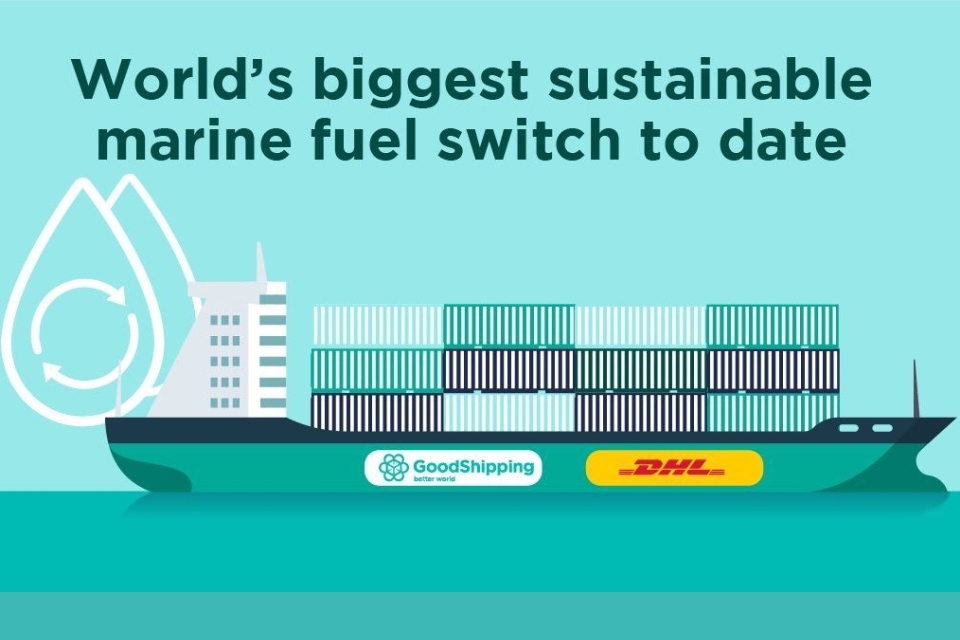DHL Global Forwarding and GoodShipping are expanding their partnership with carbon insetting. Carbon insetting focuses on transforming supply chains and reducing emissions at the source. DHL and GoodShipping plan to do this through a purchase of approximately 60 million liters of sustainable marine fuel.
With this purchase, DHL, the air and ocean freight specialist of Deutsche Post DHL Group, will reduce a total of 180,000 tonnes CO2e TtW in shipping until 2024. This commitment is equivalent to the amount of fossil fuel used to fuel ten container vessels on their journey from Asia to Europe. DHL Global Forwarding has been working with GoodShipping, the global pioneer in insetting to decarbonise the container shipping industry, for five years.
‘In 2017, we were the first logistics company to work with GoodShipping,’ says Tim Scharwath, CEO DHL Global Forwarding. ‘An important lever in reducing our CO2 emissions is the use of sustainable fuel and GoodShipping’s insetting service complements us perfectly in this regard. They have a thorough and controlled process, meet our high sustainability standards, and they share the same goal of making logistics emission-free.’
Also read: Jumbo ships three Liebherr cranes across the Atlantic on biofuels
Insetting accounting framework
DHL Global Forwarding and GoodShipping also aim to pilot a new insetting accounting framework of the Smart Freight Centre. The new framework transfers the approach of allocating emission reductions from sustainable fuels to specific customers by decoupling the accounting of the fuels’ environmental attributes from their physical flow to a general industry standard. In that way, customers can contribute to and report on emission reductions in their transport value chain even if the reduction is not physically linked to their specific transport activity.
Also read: Spliethoff trials biofuels on BigLift Baffin and Flevogracht
Biofuels made out of waste and residues
DHL’s GoGreen Plus service paves the way to transition to clean and sustainable transportation. As part of this service, customers across the different divisions of Deutsche Post DHL Group are offered various solutions for minimising logistics-related emissions and other environmental impacts along the entire supply chain, such as the use of sustainable fuels. Hereby a calculation is made using internationally agreed standards how much fossil volume the cargo owner would have used without any insetting service.
Subsequently, this corresponding volume is replaced by sustainable biofuels made out of waste and residues only. With the “Book & Claim” mechanism, DHL can pass on the benefits of lower greenhouse gas emissions (Scope 3 emissions) to its customers, helping them achieve their climate targets.
The product is part of the Group’s mid-term sustainability roadmap for 2030 and contributes to the sub-target of having at least thirty per cent of fuel requirements covered by sustainable fuels. To reduce greenhouse gas emissions in line with the Paris Climate Agreement, the Group will spend EUR 7 billion on sustainable fuels and technologies by 2030.
Also read: Spliethoff trials biofuels on BigLift Baffin and Flevogracht








